Related Research Articles

Ciskei, officially the Republic of Ciskei, was a Bantustan for the Xhosa people, located in the southeast of South Africa. It covered an area of 7,700 square kilometres (3,000 sq mi), almost entirely surrounded by what was then the Cape Province, and possessed a small coastline along the shore of the Indian Ocean.
The National Intelligence Agency (NIA) was the previous name of an intelligence agency of the South African government. Currently it is known as the Domestic Branch of the State Security Agency. It is responsible for domestic and counter-intelligence within the Republic of South Africa. The branch is run by a Director, who reports to the Director-General of the State Security Agency. The Director is also a member of the National Intelligence Co-Ordinating Committee (NICOC).

Helen Beatrice Joseph OMSG was a South African anti-apartheid activist. Born in Sussex, England, Helen graduated with a degree in English from the University of London in 1927 and then departed for India, where she taught for three years at Mahbubia School for girls in Hyderabad. In about 1930 she left India for England via South Africa. However, she settled in Durban, where she met and married a dentist, Billie Joseph, whom she later divorced.
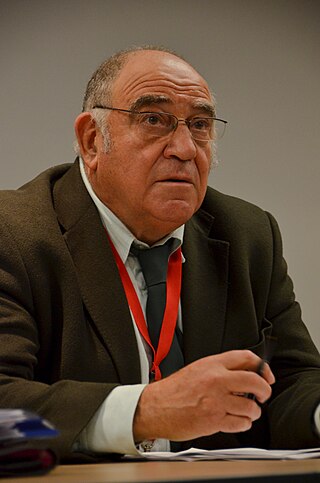
Ronald Kasrils is a South African politician, Marxist revolutionary, guerrilla and military commander. He was Minister for Intelligence Services from 27 April 2004 to 25 September 2008. He was a member of the National Executive Committee (NEC) of the African National Congress (ANC) from 1987 to 2007 as well as a member of the Central Committee of the South African Communist Party (SACP) from December 1986 to 2007.
South African politician Jacob Zuma – later the President of South Africa – was charged with rape on 6 December 2005. He was prosecuted in the Johannesburg High Court between March and May 2006. On 8 May, the Court dismissed the charges, agreeing with Zuma that the sex act in question had been consensual. During the trial, Zuma admitted to having unprotected sex with his accuser, whom he knew to be HIV-positive, but memorably claimed that he took a shower afterwards to reduce his risk of contracting HIV.

Israel–South Africa relations refer to the current and historic relationship between the Republic of South Africa and the State of Israel. As of January 2024, South Africa maintains only “limited political and diplomatic interaction” with Israel due to the ongoing Israeli–Palestinian conflict.

The Bisho massacre occurred on 7 September 1992 in Bisho, in the then nominally independent homeland of Ciskei which is now part of the Eastern Cape in South Africa. Twenty-eight African National Congress supporters and one soldier were shot dead by the Ciskei Defence Force during a protest march when they attempted to enter Bisho to demand the reincorporation of Ciskei into South Africa during the final years of apartheid.
Amandla! is a South African bi-monthly magazine that was launched in 2006. The founders are Mazibuko Jara and Brian Ashley. The magazine is published by the Alternative Information and Development Centre (AIDC) in Cape Town, and takes its name from the Zulu word amandla, which means power, and the masthead of the paper is 'Taking Power Seriously'.
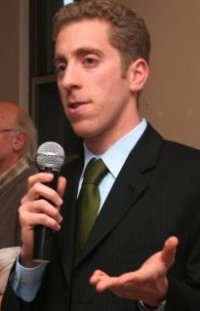
Joel Barry Pollak is a South African born American conservative political commentator, writer, radio host, and attorney. He currently serves as the senior editor-at-large for Breitbart News. He attended Harvard College ('99), the University of Cape Town ('06), and Harvard Law School ('09). In 2010, he was the Republican nominee for U.S. Congress from Illinois's 9th congressional district, losing to incumbent Democrat Jan Schakowsky. From 2009 to 2010 he was a research fellow at the Hudson Institute, and since 2017 he has been a radio host at SiriusXM.
Eleanor Kasrils was a Scottish-South African anti-apartheid activist.

Palestine–South Africa relations refer to the interstate relations between the Republic of South Africa and the State of Palestine.

Irreligion in Africa, encompassing also atheism in Africa as well as agnosticism, secular humanism and general secularism, has been estimated at over tens of millions in various polls. While the predominant religions in Africa are Islam and Christianity, many groups and individuals still practice their traditional beliefs. Despite this the irreligious population is notable, especially in South Africa where 15.1% of the population describe themselves as irreligious and in Botswana, where 20% of the population describes themselves as non-religious.

Olivia Anne Marie Forsyth , agent number RS407 and codename "Lara", is a former spy for the apartheid government in South Africa. Having attained the rank of lieutenant in the Security Branch of the South African Police (SAP), Forsyth defected to the African National Congress (ANC) and was incarcerated at Quatro prison camp in northern Angola. Following her escape, Forsyth spent six months hiding in the British embassy in Luanda.

London Recruits: The Secret War Against Apartheid is a 2012 book edited and compiled by Ken Keable, with an introduction by Ronnie Kasrils and a foreword by Pallo Jordan. It inspired a documentary film, London Recruits, directed by Gordon Main.
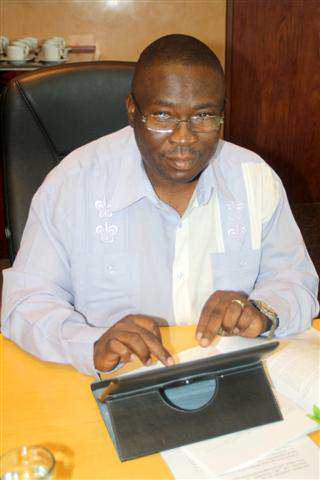
Amos Fish Mahlalela is a South African politician from Mpumalanga. He has been the Deputy Minister of Tourism since May 2019 and has represented the African National Congress (ANC) in the National Assembly since May 2014. In June 2023, he was additionally elected as the Provincial Chairperson of the ANC Veterans' League in Mpumalanga.

A Simple Man - Kasrils And The Zuma Enigma (2017) is a book by Ronnie Kasrils, a South African politician and former Minister of Intelligence Services in the cabinet of Thabo Mbeki. The book is an account on South African President Jacob Zuma's raise to power and effect on the South African government.
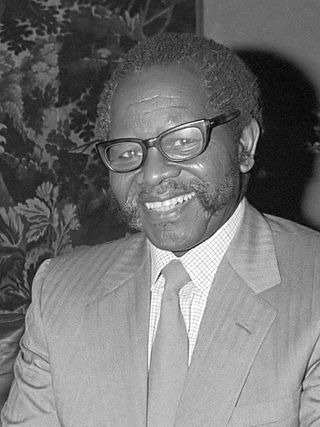
Operation Vula was a secret domestic programme of the African National Congress (ANC) during the final years of apartheid in South Africa. Initiated in 1986 at the ANC headquarters in Lusaka and launched in South Africa in 1988, its operatives infiltrated weapons and banned ANC leaders into the country, in order to establish an underground network linking domestic activist structures with the ANC in exile. It was responsible for facilitating the only direct line of communication between ANC headquarters and Nelson Mandela, who at the time was imprisoned and was discussing a negotiated settlement with the government on the ANC's behalf. The operation was disbanded in 1990, after its existence had been publicly revealed and eight of its leaders charged under the Internal Security Act with terrorism and plotting an armed insurrection.
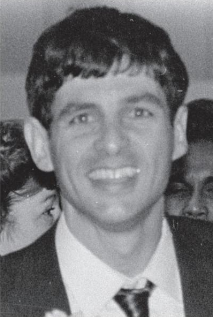
David Rabkin was a South African anti-apartheid activist known for publishing subversive pamphlets. He served seven years of a ten-year sentence for his anti-apartheid activities. After his accidental death during military training in Angola, he received a hero's burial in Luanda.

London Recruits is a 2024 Drama Documentary Thriller South African/Welsh co-production, written and directed by Welsh director/producer, Gordon Main. It is inspired by the true story of how the ANC recruited volunteers in Britain in the 1960s and 70s, at the height of apartheid, to travel to South Africa for undercover missions. The film features interviews with surviving recruits, ANC Comrades and South African security forces, interspersed with archive footage and dramatic reenactments.
References
- ↑ "Jacqueline (Jackie) Arenstein". South African History Online. Retrieved 30 April 2019.
- ↑ Shimoni, Gideon (1980). Jews and Zionism: the South African experience (1910-1967). Cape Town: Oxford University Press.
- ↑ Barnett, Marcus (11 March 2017). "Sabotaging Apartheid: Interview with Ronnie Kasrils". Jacobin. Retrieved 30 April 2019.